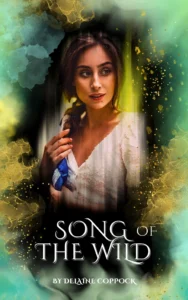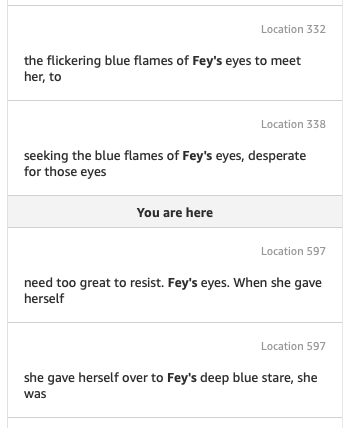About Song of The Wild by Delaine Coppock

The adventure continues for Asra, Reem, Fey and Lanaas!
Following the sudden death of the tyrannical Queen, newly crowned Queen Asra prepares to marry the former castaway Lanaas. Asra loves Lanaas’ brother Fey, but cannot deny her newly simmering feelings for the renegade Lanaas.
As new monarch, she hopes to be able to create an era of true unity, but there is a troubled air in the land of Na’eem. Facing capture, torture and new frontiers, Asra must call on ancient foes, venture beyond Na’eem to realize her destiny and thwart a war that threatens to destroy all she has ever loved.
Song of The Wild Review
I was compensated for my time reading the book and writing this review. However, all thoughts and opinions expressed are my own and are based on my honest personal experience reading the book. Nor did the author in any way shape or form ever pressure me to give a positive review.
I’ve reviewed the first book of the series already, make sure to check it out here!
Song of The Wild is the thrilling second installment of The Queen’s Blood Saga. It follows the drama, intrigue, and complex relationships from the first book, Song of Amber and Ire. Asra, now Queen, faces a tumultuous path to unite her kingdom, complicated by her evolving feelings for Lanaas, the brother of her beloved Fey. This book delves deep into themes of love, betrayal, and personal growth, all set against the backdrop of a land on the brink of war.
One thing I definitely enjoyed was the commentary on LGBT discrimination. A particular quote resonated with me on this matter and I believe excellently encapsulates the theme’s essence:
My mother hid her own love for a woman, behind severe punishment upon all others with the same love. Somehow feeling empowered by her own self-righteousness, the ability to control other people’s lives, right up to their deaths, all while hiding her true feelings.
I usually don’t highlight or analyze a particular line from a book in my reviews, but this quote did well to showcase the hypocrisy and absurdity of such discrimination. Asra’s mother, driven by a deep-seated fear of societal judgment and rejection, paradoxically conceals her own same-sex love by imposing severe punishments on others who share her own feelings. What makes this quote particularly impactful is its portrayal of the mother’s empowerment through the enforcement of these double-standard punishments. It suggests that some individuals derive a sense of power and control by discriminating against others only does so to maintain a façade of moral superiority.
This phenomenon is all too real with the discrimination in our world, where the oppressor often wields discriminatory practices as tools of dominance. Furthermore, the mention of controlling people’s lives “right up to their deaths” highlights the life-altering consequences faced by those who dare to love openly. It serves as a poignant reminder of the grim toll that discrimination can exact, including isolation, despair, and even tragedy for those who are its victims.
Maybe it’s me reading too much into it, but for me the quote from the author serves as a poignant call to action, underscoring the urgent need to challenge discrimination, promote acceptance, and foster understanding in society.
To transition from the topic of Asra’s mother to Asra’s development out of the influence of her mother, this book continues Asra’s journey as she endeavours to break free from the pervasive influence of her mother since book one. Asra’s evolution is presented with a thoughtful pacing that mirrors the complexities of her character and the gradual process of healing.
This deliberate character development feels authentic and well-suited for a trilogy, as it allows readers to witness her transformation realistically gradually. The incorporation of Lanaas as a supporting figure in her growth adds depth to their relationship and provides readers with a glimpse into the profound impact of genuine connection and trust. This pacing not only enriches Asra’s character but also propels the overarching narrative forward, ensuring that the series remains compelling and engaging.
We delve deeper into Lanaas in Song of The Wild as well, who is a character introduced towards the end of the first book. In Fey’s absence, Lanaas temporarily steps in as the male lead. Their dynamic reminds me of the “second guy gets the girl” trope with a touch of enemies-to-lovers. The “romance” between Lanaas and Asra had a lot of tension due to their initially unpleasant and untrusting introduction.
However, as the story unfolds, their relationship gradually develops, offering moments of genuine connection and comfort, especially as Lanaas assists Asra in confronting her traumatic past involving her mother. Lanaas, with his dramatic flair, emerges as a captivating love interest, which made me like him more than Fey as a love interest candidate.
His larger-than-life personality, in a book with an already dramatic writing style, reminded me of Nikolai from Leigh Bardugo’s Shadow and Bone series. He also happens to be one of my favourite male leads in that series as well. Given my preference for Lanaas, I couldn’t help but wish that Fey’s revelation of ‘betrayal’ from the incident in book one could be used to set the stage for Lanaas to take on the role of the primary love interest instead. However, this perspective is definitely influenced by my preferences in love interests, so take it with a grain of salt.

As we approach the end of this review, there is one last critique I would like to discuss. I must admit, it feels a bit unfair to nit-pick this one as it’s a tactic used in many books. Yet, I couldn’t help but notice a recurring theme throughout the narrative and it was a bit too hilarious for me to not notice.
It is Asra’s constant recollection of Fey’s captivating blue eyes. It seems that every time she misses and remembers him, it’s always “the blue flames of Fey’s eyes” or a similar description. His deep blue eyes are consistently the most frequently mentioned feature by Asra. While there could be various logical explanations for this, like it is her favourite aspect of him, its prominence started to become a bit comical for me.
It reminded me of those classic Hollywood flashbacks of dead spouses, except now if they are actively zooming in on the eyes only to a point where they are staring into your soul. Just imagining that makes me laugh every single time. Therefore as a personal reading preference, I would perhaps recommend the author to consider diversifying the attributes Asra dwells upon when reminiscing about Fey. Incorporating different facets, like his infectious smile, an image of him leaning against a window with the wind tousling his hair, or something entirely distinct, could provide a welcome variation. It’s simply an observation I couldn’t help but make.
Ultimately this was an enjoyable sequel to book one, and I look forward to book three!
If you liked this review and want to see other book reviews like this one, check out my book reviews collection!

